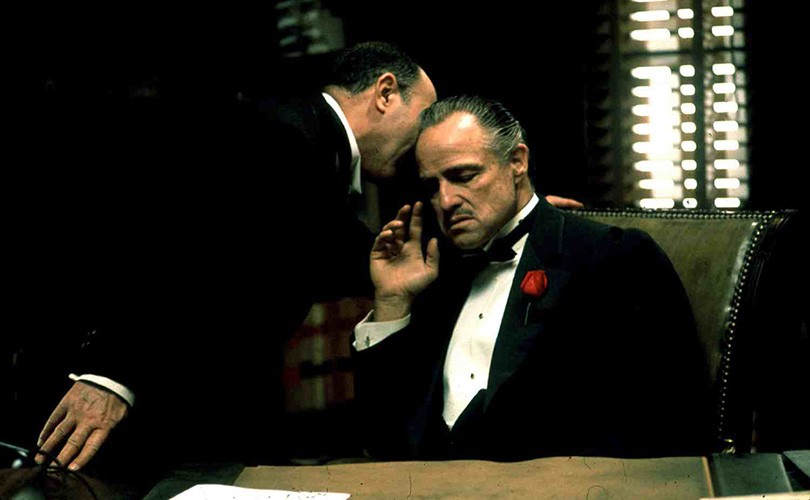Six Iconic Movies (That Are Secretly About Recruiting)
Recruiting is one of the most important functions of any company. After all, an organization is only as strong as the people who work there, and recruiters are responsible for bringing in that talent.
The problem is, the work of recruiters is often taken for granted, sort of like a pilot successfully landing a plane. The assumption to everyone else in the company is that great people appear magically; without too much concern about how they got there.
That same phenomenon happens within our movies. Some of the most iconic, most celebrated movies in history are really about recruiting. They are tales of finding someone to do a job or joining an organization, with the recruiter often going to extreme lengths to either convince one great candidate or weed through several touted ones.
Don’t believe me? Here’s a list of six iconic movies, all of which are truly about recruiting.
6. Jerry McGuire
Really, all this movie is about is Jerry McGuire starting his own sports agency and then having to recruit new athletes to it. What makes this such a particularly effective recruiting film is it shows the true nature of candidates.
Specifically, McGuire’s chief target, Rod Tidwell (played by Cuba Gooding, Jr.), says he only cares about one thing: cold hard cash. The proof:
But, by the end of the movie, Tidwell realizes he wants more than just money from his agent. He wants someone he can count on, someone who will have his back when times are the toughest.
Video evidence of their mutual respect:
Now that’s a lesson for recruiters. Sure, money is important, but having a company that cares about its employees and has their back goes a lot further and means a lot more than dollars ever could.
Of course, I’d be remiss to neglect McGuire’s best recruitment pitch in the movie, the one where he recruits his wife off the edge of divorce –
5. Charlie And The Chocolate Factory
The plot of Charlie and The Chocolate Factory is pretty simple: Willy Wonka is looking for someone to take over his chocolate factory, so he puts five candidates through one of the most intense and unusual screening processes ever created.
Now, most recruiters would probably cringe at his original screening process – basically, people just had to get lucky enough to get a golden ticket in a candy bar they bought from him – although it does show some level of commitment on the applicants’ part. After all, Augustus Gloop, for example, found the bar because of his love for Wonka’s chocolates.
Once the five people got their tickets, the real screening began in the tour of the chocolate factory. There, Wonka’s interviewing techniques proved effective, as four of the candidates were eliminated by qualities that would have prevented them from being effective chocolate factory presidents.
Gloop, for example, would have eaten all the profits, as proven here:
The last one standing was Charlie, a thoughtful and humble young boy who also loved Wonka’s chocolates. While his strategies proved unorthodox, there’s no denying the effectiveness of Wonka’s screening technique.
4. The Christopher Nolan “Batman” Trilogy
Christopher Nolan’s Batman – composed of Batman Begins, The Dark Knight and The Dark Knight Rises – are perhaps the most transcendent super hero movies of all time. They are so gritty and real that the idea of a man running around in tights and a cape (almost) doesn’t seem ridiculous.
Oh, and they’re all about recruiting. At least, the first and the third films are.
The plot of the trilogy really revolves around Bruce Wayne, aka Batman, and his relationship with the League of Shadows, which is an underground group of assassins led by Ra’s al Ghul (played by Liam Neeson).
In the first film, Ghul spends the beginning of the movie recruiting Wayne into the League of Shadows. His efforts prove unsuccessful, so he becomes spiteful and attacks Wayne in his own house while unveiling his plans to destroy Gotham City.
But Wayne proves too much for Ghul, as he stops Ghul from destroying the city and kills him. So, in the third movie, a second Ghu recruit, Bane (played by the criminally underrated Tom Hardy), seeks to do what his master could not.
He also fails:
Moral of the movie: treat your rejected candidates with respect. Otherwise, it could really come back to haunt you.
3. The Blues Brothers
The Blues Brothers is about brothers “Joliet” Jake Blues (played by John Belushi) and Elwood Blues (played by Dan Aykroyd) going on a recruiting mission to end all recruiting missions. Basically, Joliet just got out of jail after a three-year sentence, and the two brothers decide to get all the members of their band back together for one big concert.
As you can see in this clip, they really believe in the assignment:
The two men stop at nothing to land their targets. Look at the effort they put here to convince their trumpeter, Mr. Fabulous, to leave his job as maître d’ at a fancy restaurant to rejoin their band:
Ultimately, the two men accomplish their goal and put on one great concert. Of course, police interrupt the concert at the end to arrest the two brothers, but it doesn’t diminish the movie’s two recruiting lessons: believe in your mission and never take no for an answer.
2. Star Wars
Star Wars is one of the most iconic film franchises in movie history. Despite the first movie being released in 1977, it gains millions of young fans each year, and a new film in the franchise is slated for release this December.
Why do people love it so much? Well, a big reason is the overarching plot of the six-film franchise, which revolves around recruiting.
The first three films chronologically in the series – the ones that were actually released later, in the late 1990s and early 2000s – chronicle Sheev Palpatine’s successful recruiting of Anakin Skywalker to the Sith, aka the dark side.
Skywalker is the most powerful Jedi in the galaxy. When he joins the Sith, Palpatine rises to the position of emperor and evil reigns supreme in the galaxy.
Here’s the dramatic moment when Palpatine closes Anakin, the first step toward the end of the Galactic Republic:
Years later, Anakin’s son Luke Skywalker becomes of age, with even more power than his father. Palpatine quickly realizes he needs this young Skywalker on his side as well to continue his reign, but makes a crucial mistake: he sends someone else to do the job.
In this case, Luke’s father, who tries his best with this pitch:
A good effort, but not good enough, as Luke Skywalker shuns his Sith father and destroys the evil empire. The question lingers: why would Palpatine delegate such an important job he was so effective at previously?
Steve Jobs said that hiring is any leader’s most important task. Also, just because someone is good at their job, doesn’t mean they’ll be good at recruiting others to join them.
Palpatine neglected both of those truths, and this was the result:
1. The Godfather
The Godfather is often considered the best movie ever made. Interesting, considering the movie is basically a 175-minute screening process.
In the film, the aging Mafia don Vito Corleone has to decide which of his three sons is best suited to run the family business: Sonny, Fredo or Michael.
Sonny is the obvious choice because he’s the oldest, but he’s also short-tempered. While Vito is still weighing his options, Sonny’s biggest flaw proves fatal, as he removes himself from consideration when his anger leads him to this unfortunate situation:
That leaves Fredo and Michael. Fredo is older and, therefore, the conventional choice. But Vito knows he’s too weak for the role, and decides to cede power to his youngest son.
Here’s a clip of Vito, in his own way, telling Michael he’s the one who has to take over the family business:
The Godfather is often considered the perfect movie, with fantastic acting, a gripping plot and beautiful cinematography. But it also has a lesson for recruiters and hiring managers alike: hiring can be really difficult.
It would be easier for Vito just to have passed the family over to Fredo, or Sonny before he died, instead of giving it to Michael. Just like it’s easier to give a new position to the person whose been around your company the longest or the one who puts the most effort in to get it.
But hiring shouldn’t be about what’s easy. It should be what’s best for the company. And just like Michael wasn’t the easy hire, but the right one; any hiring decision should always be about what’s right, not what’s easy.
* image by The Godfather
To receive blog posts like this one straight in your inbox, subscribe to the blog newsletter.
Topics: Industry humor and fun
Related articles




